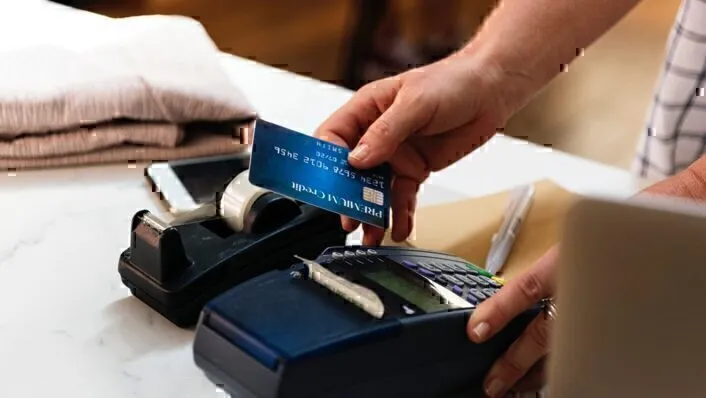Whether the annual fee is no longer worth it, you’re trying to reduce the temptation to overspend, or you’re just mad at your bank, you want a card out of your life. How do you know when to cancel your credit card?
While cancelling a card won’t necessarily wreak the credit havoc some fear, there are some consequences to consider – and some steps to take to make sure the card is actually closed.
How to cancel a card
Cancelling a card is pretty simple, says Kathryn Moore, a financial counselor at GreenPath Financial Wellness. Just call the customer service number on the back of your card and explain that you want to cancel. Note that cutting up the card with scissors won’t be enough – the account will remain open (even if the card is unusable) until you make the call.
The representative may make a retention offer (bonus points or a waived annual fee) to encourage you to keep the card. If you truly want to close it, though, stand firm.
Then follow up. With data theft an ever-present threat, you want to make sure thieves aren’t racking up charges on a card you thought was closed, Moore says. Your issuer will likely send you a notification that your account has been shut down, and your online account should be updated accordingly. If you want to be absolutely sure, however, check your credit reports. You’re entitled to one free report every year from each of the three credit bureaus, and Moore recommends pulling one report every four months to spread out your free reports.
“That would be the time to look and confirm that the account has actually been closed down,” she says. “It probably was, but you want to double check.”
While closing a card is easy, there are still a few issues to be aware of:
- Rewards: Some cards let you earn frequent flier miles, which will stay safe in your frequent flier account, even after you close the card. Others have proprietary rewards (cards tied to the Chase Ultimate Rewards program, for example), and those points will disappear once the card is closed. If you have such a card, redeem your rewards before closing; some cards even allow you to transfer out to partner programs.
- Residual interest: If you just paid off your balance (after carrying one for several payment cycles), you could get hit with residual interest charges (sometimes called “phantom interest”). Read about residual interest here.
Reasons to cancel a card
If you just don’t plan to use a card much anymore, you have the option of sock-drawering it – putting it in a safe place until you need one of its benefits. Yet there are good reasons for going the extra step and canceling:
- Avoiding temptation: Sock-drawering is probably fine for those with discipline. Those lacking it may turn to more drastic measures, such as freezing the card in a block of ice. Taking a pair of scissors to a card is another option, but card information saved in online shopping accounts means over-spenders won’t be cut off completely.
“If you can’t trust yourself with just putting the card in a drawer or freezing it, calling the creditor to cancel the card is probably best,” Moore says.
If your card has a balance, you can still close the account — and that may actually be advisable. It can take months or years to pay down a big balance, and closing the account while you do so prevents you from adding to the balance during that time. Spokespeople from Bank of America and Wells Fargo confirmed that they allow cardholders to close an account for future use while they pay down their debt.
“There’s a lot of confusion about what closing an account means,” Moore says. “You can close it when you have a balance, and some people may not realize that. If you have issues with control, close it down before paying it off.”
- Simplification: Managing a lot of cards comes with a lot of responsibilities, including keeping your balances low, paying off all your cards on time and combing your statements for fraudulent charges.
“If you have 10, 15, 20 cards from all these different banks, that might not be realistic,” Moore says. “So getting your cards down to a handful might make it easier.”
Credit consequences
While cancelling a card can affect your credit, it’s often not the grave, credit-annihilating blow it’s often made out to be. The two things you need to consider are: FICO components pie chart utillization
- Credit utilization: Utilization is the amount you owe compared to how much available credit you have. The lower that ratio is, the better it is for your credit score. Utilization factors into “amounts owed,” which makes up 30 percent of your score. It also happens to be the primary area impacted when you close a card.
“If you close a revolving account, this will reduce the amount of your available credit,” says FICO spokesman Jeffrey Scott. “If all your other balances remain the same, your credit utilization will increase. This can have a negative impact on the FICO score.”
- Age of the account: Because length of credit history accounts for 10 percent of your FICO score, there’s some merit to thinking twice about shutting down old accounts, Moore says.
“It would be a consideration if I were weighing which card to close,” she says. “There’s a lot that would go into that decision, but how old the account is would be one factor I’d consider.”
Keep in mind that old accounts don’t disappear from your credit reports right after you close them. Accounts with damaging information (like delinquencies) stay on for seven years, while accounts closed in good standing remain for 10 years. As long as they’re on your reports, they’re counting toward your credit history for FICO-scoring purposes.
Because other open accounts will continue to age during that time, the closed account eventually falling off may have little effect. However, if your credit history is otherwise thin and you open a couple new accounts right before the drop-off date, the sudden absence of an old account may ding your score slightly.
Your credit score shouldn’t be your only concern, however, and closing an account may still be justified. Someone fretting about the FICO implications of closing cards while continuing to run up high balances is doing not only their credit, but their long-term financial health, a disservice.
“Maybe for that person, building the perfect credit score is not their No. 1 financial priority,” Moore says. “It’s getting that debt paid down.”
GreenPath Financial Service
Free Debt Counseling
Take control of your finances, get tailored guidance and a hassle-free budgeting experience. GreenPath offers personalized advice on how to manage your money.










